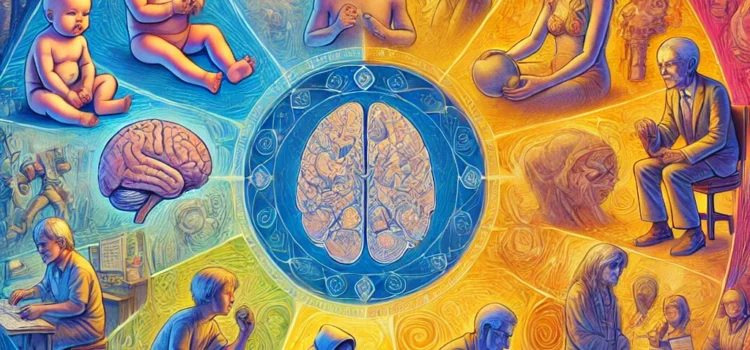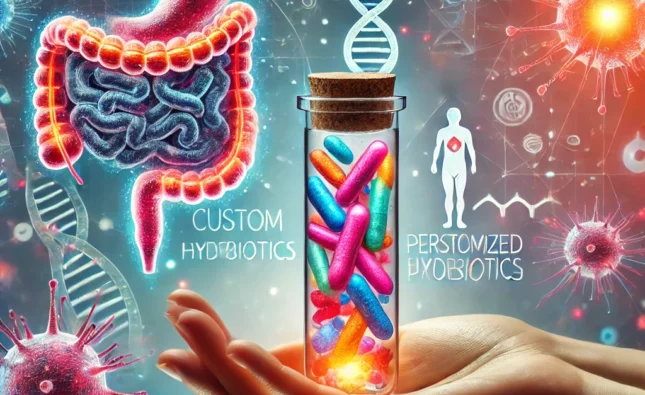
Outline
- Introduction
- Overview of the human life cycle
- Importance of understanding psychological stages
- Stage 1: Infancy (0-2 years)
- Developmental milestones
- Key psychological challenges
- Attachment and bonding
- Stage 2: Early Childhood (2-6 years)
- Cognitive and emotional development
- Social interactions and play
- Developing self-concept
- Stage 3: Middle Childhood (6-12 years)
- School and academic challenges
- Peer relationships and social skills
- Identity formation
- Stage 4: Adolescence (12-18 years)
- Physical and hormonal changes
- Identity vs. role confusion
- Importance of peer influence
- Stage 5: Early Adulthood (18-40 years)
- Establishing independence
- Career and relationship development
- Intimacy vs. isolation
- Stage 6: Middle Adulthood (40-65 years)
- Career peak and re-evaluation
- Parenting and generativity
- Coping with aging
- Stage 7: Late Adulthood (65+ years)
- Retirement and lifestyle changes
- Reflection on life and legacy
- Facing mortality and achieving integrity
- Conclusion
- Summary of key points
- Importance of understanding psychological development
Introduction
The human life cycle is a complex journey marked by distinct stages, each characterized by unique psychological challenges and developmental milestones. Understanding these Staģes is crucial for appreciating the various phases of human growth and development. This article delves into the seven Staģes of the human life cycle, exploring the psychological aspects of each phase and highlighting the importance of these transitions.
Stage 1: Infancy (0-2 years)
Developmental Milestones
Infancy is a period of rapid growth and development. During these first two years, infants achieve significant milestones such as crawling, walking, and the development of basic motor skills. Cognitive development is also critical, with babies beginning to recognize faces, respond to voices, and understand simple words.
Key Psychological Challenges
A key psychological challenge during infancy is developing trust. According to Erik Erikson’sStaģes of psychosocial development, the primary task for infants is to develop trust when they receive consistent care and affection from their caregivers.
Attachment and Bonding
Attachment theory, pioneered by John Bowlby, emphasizes the importance of the bond between infants and their primary caregivers. Secure attachment forms the foundation for healthy emotional and social development throughout life.
Stage 2: Early Childhood (2-6 years)
Cognitive and Emotional Development
Early childhood is marked by significant cognitive and emotional growth Staģes. Children begin to develop language skills, engage in symbolic play, and start to understand complex emotions. This stage is crucial for developing self-regulation and empathy.
Social Interactions and Play
Play is a vital aspect of early childhood development. Through play, children learn social norms, cooperation, and problem-solving skills. Interaction with peers helps them develop communication skills and build friendships.
Developing Self-Concept
During this Staģes, children begin to form a self-concept, understanding themselves as distinct individuals with their own preferences, abilities, and identities. This self-awareness is critical for later Staģesof development.
Stage 3: Middle Childhood (6-12 years)
School and Academic Challenges
Middle childhood is characterized by the start of formal education. Children face academic challenges that require concentration, perseverance, and cognitive skills. Success in school builds self-esteem and confidence.
Peer Relationships and Social Skills
Peer relationships become increasingly important during middle childhood. Children learn to navigate friendships, group dynamics, and social hierarchies, which are essential for their social development.
Identity Formation
This stage is crucial for identity formation. Children begin to compare themselves to others, which influences their self-esteem and self-concept. They start to explore their interests and abilities, laying the groundwork for their future identity.
Stage 4: Adolescence (12-18 years)
Physical and Hormonal Changes
Adolescence is marked by puberty, bringing about significant physical and hormonal changes. These changes can affect mood, behavior, and self-image, making this a challenging period for many teenagers.
Identity vs. Role Confusion
Erikson describes adolescence as a time of “identity vs. role confusion.” Teens explore different roles, values, and beliefs to form a cohesive identity. This exploration is crucial for developing a sense of self.
Importance of Peer Influence
Peers play a significant role in shaping attitudes, behaviors, and self-concept during adolescence. Peer relationships provide support, companionship, and a sense of belonging, but can also introduce pressure to conform.
Stage 5: Early Adulthood (18-40 years)
Establishing Independence
Early adulthood involves establishing independence and self-sufficiency. Individuals focus on building careers, forming intimate relationships, and setting personal goals. This Staģes is characterized by exploration and self-discovery.
Career and Relationship Development
Career development and relationship building are central to early adulthood. Success in these areas provides a sense of achievement and fulfillment. Romantic relationships often lead to long-term commitments and family formation.
Intimacy vs. Isolation
Erikson identifies the key challenge of early adulthood as “intimacy vs. isolation.” Forming deep, meaningful relationships while maintaining a sense of self is crucial for emotional well-being.
Stage 6: Middle Adulthood (40-65 years)
Career Peak and Re-evaluation
Middle adulthood often represents the peak of one’s career. However, it is also a time for re-evaluation and reflection. Individuals may reassess their goals, achievements, and life direction, sometimes leading to mid-life crises.
Parenting and Generativity
For many, middle adulthood involves parenting and a focus on generativity—contributing to the next generation through nurturing children or mentoring younger colleagues. This Staģes emphasizes the importance of legacy and continuity.
Coping with Aging
Physical changes and health concerns become more apparent during middle adulthood. Coping with aging and maintaining physical and mental health are essential aspects of this stage.
Stage 7: Late Adulthood (65+ years)
Retirement and Lifestyle Changes
Late adulthood is often associated with retirement and significant lifestyle changes. Adjusting to a new routine and finding meaningful activities are important for maintaining a sense of purpose and fulfillment.
Reflection on Life and Legacy
Erikson describes the central task of late adulthood as “integrity vs. despair.” Reflecting on life achievements and contributions can lead to a sense of integrity and satisfaction, while unresolved regrets may result in despair.
Facing Mortality and Achieving Integrity
Facing mortality and the end of life is a significant psychological challenge. Achieving a sense of integrity involves accepting one’s life as it was lived, finding peace with past decisions, and feeling a sense of completeness.
Conclusion
Understanding the seven Staģes of the human life cycle provides valuable insights into the psychological challenges and developments that occur throughout life. Each stage presents unique opportunities for growth and self-discovery, shaping who we are and how we navigate the world. By recognizing and addressing the psychological needs of each stage, we can support healthier, more fulfilling lives.













